AIC Statements
As President Donald Trump is poised to take office for a second time, many are predicting a difficult and turbulent future for US-Iran relations. While it is true that Trump's rhetoric has been confrontational at times, we believe this moment presents a unique opportunity to improve relations between the two nations.
1. Trump’s Deal-Making Approach
At his core, President Trump is a dealmaker. His approach to foreign policy has been driven by the desire to secure favorable agreements, often by challenging the status quo and pushing for new terms that benefit the United States. This pragmatism, which focuses on the bottom line, could open the door for a redefined relationship with Iran. In the past, negotiations with Iran have often been bogged down by entrenched positions. Trump's business-oriented mindset could provide the flexibility needed to craft new deals that address mutual interests—whether they be in trade, security, or regional stability.
The American Iranian Council (AIC), like many in the region and around the world, is deeply concerned about the escalating conflict in the Middle East and the growing likelihood of a regional war. We urge all parties to refrain from inflammatory rhetoric and military initiatives, and to resolve conflicts through renewed diplomatic efforts.
It is undeniable that Israel has been subjected to unacceptable violence. Hamas, Hezbollah, Iran, and other regional actors must recognize that the destruction of the State of Israel is an unrealistic ambition. Attacks on Israeli civilians are as strategically senseless as they are morally abominable. Hostile actions must cease, Israel's existence must be accepted, and differences should be resolved through diplomacy.
Equally, Israel cannot continue to rely solely on military force for its security. Reports indicate that Prime Minister Netanyahu has resisted a deal with Hamas to end the conflict in Gaza and secure the release of Israeli hostages. Additionally, Israeli airstrikes in Syria, including its attack in April on Iran’s Damascus consulate, and recent operations in Lebanon now see Israel and Iran coming into direct conflict—a devastating prospect for both nations and the entire region.
Dear Friend,
Let us begin by sending you a warm New Year’s greetings from everyone at the American Iranian Council.
The past year has been a difficult one. In Iran, following the death of Mahsa Amini, the Women, Life, Freedom movement gained momentum resulting in clashes between the government and protestors. AIC called for the government of Iran to curb its use of force against protesters and accept its peoples’ legitimate demands. Western governments' support for the protests further increased tension between them and Iran.
Dear Friend,
On behalf of everyone here at the American Iranian Council, we wish you a Happy Nowruz!
Nowruz is the first day of spring and the first day of the new Iranian calendar year, which will be 1402 on March 21 (2023). Nowruz has been celebrated for over three millennia, and Iranians of all religious and ethnic orientations share in the joys and prosperity it promises.
Certainly, many Iranians will be hoping this Nowruz brings with it a significant change of circumstances. Last year was an especially tumultuous period for the country following the death of twenty-two-year-old Mahsa Amini. During the widespread protests that followed, AIC called for the government of Iran to curb its use of force against protesters and accept its peoples’ legitimate demands.
Although the American Iranian Council has for the past thirty years primarily focused its efforts on relations between the US and Iran, and not on Iranian internal affairs, from time to time the events within Iran are so extraordinary as to require extra attention. The recent period following the death of twenty-two-year-old Mahsa Amini has been such a time.
Young Iranians - women and men alike - have come out in a show of unity demanding change for their country, including the removal of restrictive dress codes for women and the "morality police" system, which led to Mahsa Amini's death. They are also demanding a broader array of changes, including better economic conditions and renewed integration with the rest of the world.
The American Iranian Council supports the Iranian people in their calls for change. We urge the Iranian government to be restrained in its use of force against protesters and to accept its peoples' legitimate demands. Meanwhile, as news of the protests spread around the world, the AIC cautions other countries against intervening in Iran's internal affairs.
- The American Iranian Council
On May 25th, a well-known website for language sharing and learning, called iTalki, sent a message to its users in Iran informing them that iTalki will no longer provide service in their region beginning in late June. (1)
iTalki is not the largest, nor the most influential company to adjust its policies due to sanctions, but it is symbolic of the true harm that sanctions can cause to cultural exchange. It is a popular platform for language-learners to find conversation partners or teachers, and many young people in Iran make their livelihoods via this website teaching curious Westerners how to speak Persian. Some iTalki members don’t use the platform for commercial purposes at all, but simply to chat with people in another country, practice their language skills and to share tips and cultural insights.
I’ve used the service for many years and made great friends there. Together, we have not only spoken about cultural topics like food, traditions, music, and travel, but we’ve also discussed our personal lives. I spoke with one woman from Shiraz for over two years; she talked about her attempts to get pregnant; I shared the sadness I experienced after my mother’s stroke.
Conversations like these are important; not just for individual enrichment, but also for their national and international reverberations. Communication between people - particularly when it happens in a shared language - helps dispel misconceptions and improves understanding.
Dear Friend,
On behalf of everyone here at the American Iranian Council (AIC), we wish you a Happy Nowruz!
Nowruz is the first day of spring and the first day of the new Iranian calendar year, which will be 1401 on March 20 (2022). Nowruz has been celebrated for over three millennia, and Iranians of all religious and ethnic orientations share in the joys and prosperity it promises.
Nowruz is known as a time for fresh beginnings, and with the prospect for a renewed JCPOA on the horizon, the true spirit of Nowruz for Iran and the Iranian people may play out this year not just in homes in Iran and around the world, but also on the troubled international stage.
Dear Friend,
Happy new year from everyone at the American Iranian Council. We wish you a 2022 filled with joy.
For those of us at AIC who have been working in US-Iran relations over the past three decades, it would be easy to become inured to the constant whiplash of hope and fear permeating US and Iran relations. Since 1979 the two countries have oscillated between periods of hostility and those of cautious diplomatic overtures.
As we begin the new year, we find ourselves again in a difficult period as negotiations to bring the US and Iran back into compliance with the JCPOA continue with slow progress. President Raisi of Iran has particularly expressed concern about the US' willingness to adhere to the terms of any deal beyond President Biden's presidency.
Dear Friend,
On behalf of everyone here at the American Iranian Council, we wish you a Happy Nowruz!
Nowruz is the first day of spring and the first day of the new Iranian calendar year, which will be 1400 on March 21 (2021). Nowruz has been celebrated for over three millennia, and Iranians of all religious and ethnic orientations share in the joys and prosperity it promises.
After a difficult four years in US-Iran relations under the Trump administration, it is with cautious optimism that we write to ask for your support towards a renewed effort in improving US-Iran relations during the Biden administration.
The American Iranian Council is deeply concerned about the recent outbreak of violence in the Gulf of Oman and state of escalating tensions in the region. Although relations between the United States of America and the Islamic Republic of Iran have been poor since the Iranian Revolution in 1979, the current situation is among the worst AIC has seen since we began our work twenty-six years ago, and risks breaking out into a fully armed regional conflict.
The Council urges both the U.S. and Iran to contemplate the policies they have enacted that have led to this dangerous crossroads, and also to consider the deep responsibility they bear to their citizens and the world in ensuring that a peaceful off-ramp for the current tensions be secured.
Last year, the AIC expressed grave concern about the United States’ decision to withdraw from the 2015 Joint Comprehensive Plan of Action (JCPOA) without evidence of Iranian non-compliance and/or the support of other signatories. At the time, we labeled this decision not just provocative but potentially militaristic and moreover, inconsistent with the values of moral leadership and the rule of law that America has long championed. In the Council’s view this withdrawal was the most significant action leading to the current tensions. Other, more recent moves Washington has made against Tehran, including designating Iran’s Revolutionary Guard Corps as a terrorist group and the deployment of additional U.S. military equipment and personnel to the Middle East without the support of its allies and to the alarm of many in Congress, have only further stoked tensions while accomplishing little to change Iran’s regional activities
RE: Persian Gulf
Dear Thomson Reuters Board Members and Trustees:
As many of you may be aware, the stylebook and guidelines for Thomson Reuters stipulates that all articles pertaining to the Persian Gulf region be redacted to use the term “Gulf,” regardless of what the original journalist may have written or what the universally accepted name is for this body of water. As this region is often in the news, this is a persistent and readily apparent change that appears before millions of readers worldwide. There are several issues with this style change which the American Iranian Council would like to raise with the leadership of Thomson Reuters and encourage a change in policy.
First, Thomson Reuters has suggested that the term “Gulf” is used due to a naming dispute over the body of water in question. There is in fact no naming dispute at present, nor is it being challenged in any court, at the United Nations or other relevant international bodies. There are, certainly, several Arab governments who seek to abandon the historic term for political gains but it is incorrect for an internationally celebrated organization such as yours to claim that there is an international dispute. Previous disputes raised at the UN, found in favor of using the historic Persian Gulf name exclusively.
The American Iranian Council is dismayed by the Trump administration’s decision today to pull out of the JCPOA.
As we stated on October 13, 2017 when President Trump decided not to recertify the Iran Deal, we oppose the action for a variety of reasons, including:
The fact that Iran has complied with the terms of the JCPOA. The IAEA has repeatedly confirmed Iran’s compliance and top U.S. military and State Department officials have also confirmed that Iran is complying with the deal;
The JCPOA is not a bilateral agreement with Iran, but a multilateral agreement among the P5+1, which includes important U.S. allies who continue to express their support for the deal. Rejecting it puts the US on the opposite side of a major international agreement and its allies;
Scrapping the JCPOA is a dangerous precedent to set given the need for potentially similar diplomatic negotiations with countries like North Korea; and
Rejecting the nuclear deal harms US interests: it reduces the US' stature around the world and it replaces the benefits of the deal (such as stability and a non-nuclear Iran) with instability and uncertainty, which could result in additional US military presence in the region.
Dear Friend,
On behalf of everyone here at the American Iranian Council, we wish you a happy Nowruz!
Nowruz is the first day of spring and the first day of the new Iranian calendar year, which will be 1397 on March 20 (2018). Nowruz has been celebrated for over three millennia, and Iranians of all religious and ethnic orientations share in the joys and prosperity it promises.
The year 1396 was an especially difficult period in US-Iran relations marked by (i) uncertainty over the future of the JCPOA, (ii) concern over growing “Iranian influence” in the region, (iii) US support for Iranians protesting economic and social conditions, and (iv) the continued implementation of a US travel ban on Iranians, among other significant matters.
Let us begin by sending you a warm New Year greeting from everyone at the American Iranian Council. Given the growing US objections to Iran’s missile program and regional behavior, US-Iran relations could further deteriorate in the months ahead despite the fact that Iran has implemented its commitments in the JCPOA (the nuclear deal). Even more daunting are the challenges that come with the growing troubles between Iran and the two major US Middle east allies, namely Saudi Arabia and Israel.
However, and notwithstanding these difficulties, we strongly believe that, with your support, we can make 2018 a year of substantive achievements.
AIC is a long-standing non-profit, non-partisan educational organization with nearly three decades of experience working with administrations on both sides of the political aisle. Because of our longevity and expertise, as well as the caliber of our leadership, we are well-positioned and prepared to work with the Trump administration to achieve meaningful results towards improved understanding and dialogue.
On July 14, 2015, the American Iranian Council (AIC) celebrated the signing of the JCPOA as an important day for diplomacy and the international community – a day that demonstrated how diplomacy could achieve what threats and coercion could not. Today, as an organization that has worked for nearly thirty years to promote understanding and dialogue between the US and Iran, the American Iranian Council strongly rejects the Trump administration’s decision to refuse to re-certify the JCPOA. The AIC further expresses its deep concern that the Trump administration’s decision will be a “black eye” for diplomacy and the US’s reputation around the world. We oppose this action for a variety of reasons, including:
1. The fact that Iran has complied with the terms of the JCPOA. The IAEA has repeatedly confirmed Iran’s compliance with the deal, including as recently as August 2017. Top US military and State Department officials have also confirmed that Iran is complying with the deal;
The American Iranian Council strongly rejects the Trump administration’s new executive order banning nearly all immigration to the United States from Iran and six other countries. Under President Trump’s latest order, the ban on immigration from Iran will be indefinite with exceptions only for students, exchange scholars, and individuals with existing valid visas. Even individuals who have “bona fide connections” to the United States, including close family members of US citizens, will no longer be able to enter the country. The American Iranian Council believes that such a blanket ban on the immigration of Iranians will be neither effective in reducing the risk of terrorism against the United States, nor successful in promoting American interests.
First, this ban, like its prior version, does not target countries with citizens who have a history of terrorist attacks on the United States (e.g., the terrorists of September 11). Moreover, Iran’s continued inclusion in the ban strains credulity as not a single Iranian has ever committed an act of terror against Americans on the US homeland.
The American Iranian Council joins the world community in mourning the loss of Dr. Maryam Mirzakhani, the award-winning mathematician, professor at Stanford, and Tehran-native, who passed away on Saturday at the age of 40 after a four-year battle with breast cancer. AIC extends its condolences to her husband, daughter, extended family and colleagues.
AIC also celebrates Dr. Mirzakhani’s many contributions to mathematics and women’s equality. A pioneer in her field, Mirzakhani specialized in the geometric properties of curved surfaces and became the first and only woman, as well as the first Iranian, to receive the Fields Medal, often called “the mathematician’s Nobel Prize.” Upon her passing, President Rouhani reflected that Mirzakhani “made Iran’s name resonate in the world’s scientific forums,” and that her work “was a turning point in showing the great will of Iranian women and young people on the path towards reaching the peaks of glory.”
Dear AIC Community,
Unless you are a space geek like me, you might not be aware that the U.S. will experience a total solar eclipse next month -- the first one to occur over the continental U.S. in over 38 years! If you are in its path (or traveling to see it), I wish you clear skies!
For me, a total solar eclipse elicits memories of my first trip to Iran in 1999 when I traveled there to view the last total solar eclipse of the millennium with a group organized by Search for Common Ground. The group was comprised of distinguished astronomers, diplomats, and myself – a sixteen-year-old aspiring scientist. At the time, I thought the trip would propel me to a career at NASA; instead, it led me here, to the American Iranian Council. During that trip I fell in love with the country of Iran and its people; and now, as Director of Operations at AIC, I believe that my experience demonstrates how intercultural understanding obtained early in life can have an impact years later.
Dear AIC Leaders, Administrators and Friends,
As you were informed in April, I took a leave from the AIC to work on my campaign for President of Iran this May. I was successful in officially registering my candidacy with the Interior Ministry but did not receive approval from the Guardian Council to stand for the vote. I believe if I had been given that chance, I would have won the election. I take this opportunity to congratulate President Hassan Rouhani for winning a second term.
During my absence, Mr. Michael Caridi, my great friend and a Board Member of the Council, served as Acting President. Now that I am back, he wishes me to return to the job and I am accepting his kind request. I remain deeply appreciative of Michael’s hard and strategic work during my absence. This transition has the approval of our Chairman, Senator J. Bennett Johnston.
The American Iranian Council joins the global community in strongly condemning the horrifying terrorist attacks perpetrated today in Tehran at the Parliament building and the mausoleum of Ayatollah Khomeini. The AIC also sends its deepest condolences and sympathies to the families and loved ones of those who died or were injured in the attacks.
We appreciate the fact that the US State Department has joined in condemning these murderous acts and has expressed sympathies for the Iranian people. During this difficult time, we also urge the government of Iran to be patient and perform a careful review of the evidence before making unproductive accusations against other countries in the region. Daesh has claimed responsibility for the attacks in Tehran, and the focus now should be on countering these radical extremists and on improving the safety and security of the Iranian people.
Dear AIC Community,
I am excited to announce that AIC is partnering with the award-winning educational non-profit, ProjectExplorer.org, to send a small film crew to Iran in Spring 2018 to produce a series of short, high-quality, educational videos about everyday life in Iran.
These videos will be distributed free of charge to classrooms and educators in the US and around the world so that students can learn about Iran as part of their standard curriculum. ProjectExplorer.org content currently reaches over 6 million students (ages 8-18) annually. Additionally, we plan to share the Iran Series widely on social media and with a major television broadcast partner that has millions of viewers.
Dr. Rouhani has won a second term in the 2017 Presidential Election in Iran. Nearly 70% of Iranian voters turned out on May 19 to cast their ballots for the next President. Vote tallies placed incumbent President Hassan Rouhani as the winner with 23 million votes, overshadowing the runner-up, Mr. Ebrahim Raisi who received 15.7 million. With the support of 57% of voters, President Rouhani will have a strong mandate to continue his moderate policies and outreach to the West.
The American Iranian Council congratulates President Rouhani on his victory, wishes him luck in his second term, and hopes that he will be able to effectively lead the country towards prosperity in this turbulent time. President Rouhani must now move beyond the competition and become the President for all Iranians, defending their rights and solving their problems. We also urge his competitors in this election to accept the result and cooperate with President Rouhani towards a better Iran.
What is the Heart Iran pin?
In the wake of the Trump administration's travel ban, many people asked themselves what they could do to help. One such person is the talented graphic designer, Kristina Filler, who contacted AIC and offered to create a "Heart Iran" pin so that Americans could show their support for the Iranian people.
The design of the pin - fittingly about the size of a flag pin at 3/4" wide - was partially inspired by the social media hashtag #lovebeyondflags that has gained popularity among Americans and Iranians alike. The hashtag has been used to emphasize shared experiences, promote dialogue, and express hope for improved relations.
I am writing to inform you that I will be taking a temporary leave of absence as President of the American Iranian Council during the period of the Presidential election in Iran. As many of you are aware, I have previously run for President of Iran. This year, I have again announced my candidacy:
English: https://www.trackpersia.com/iranian-american-professor-gears-presidential-election/
Persian: http://masalnews.ir/46222/
My leave will begin on April 10 and last at least through the Presidential election season. The American Iranian Council is proud to be a non-partisan organization with nearly three decades of achievement in US-Iran relations. My leave will ensure that the organization remains non-partisan and that there is no conflict of interest or association between my political activities and statements and those of the organization.
On behalf of everyone here at the American Iranian Council, we wish you a warm Nowruz greetings! Nowruz is the first day of spring and also the first day of the new Iranian calendar year, which will be 1396 on March 21 (2017). Nowruz has been celebrated for over 3000 years, and Iranians of all religious and ethnic orientations share in the joys and prosperity it promises. We sincerely hope that this Nowruz will usher in better US-Iran relations.
The closure of 1395 was admittedly a rocky period in US-Iran relations, with increased rhetoric on both sides, the imposition of a blanket travel ban on Iranians, ballistic missile testing by the Iranian government, and the new Trump administration putting Iran “on notice.” Of course, rocky times are not new. As a long-standing organization with nearly three decades of experience in this field, we recognize that US-Iran relations have always been challenging. And yet, with time and effort, real progress has been made in the past and can be made moving forward.
If you support this message please add your signature by leaving a comment below the Persian translation of this letter.
Open Letter to the People of Iran:
We, the American People who disavow President Trump’s executive order denying you entry into our country, are writing to say that we stand with you.
We, who oppose this order, are American citizens of all backgrounds, races, religions and creeds. We are old and young, rich and poor, and work in all professions. We are government officials who are refusing to implement this order. We are lawyers who are contesting this order in court. We are journalists who are sharing the stories of those affected. We are ordinary citizens protesting on the streets. We are Americans who believe in democracy and the values enshrined in our Constitution, and we stand with you.
President Donald Trump is expected to issue an executive order this week banning immigration to the US from Iran and six other Muslim-majority countries. The American Iranian Council considers this order as inappropriate and ineffective in the fight against terror. It is only unfortunate that a very small minority among the 1.5 billion Muslims in the world should be engaged in terrorism, giving Islam a tarnished name. While we must protect our people and the Council is fully for acts that improve our national security, we believe targeting entire countries for the action of a few is unjust and counterproductive to U.S. interests and the “America First” directive of the new administration.
Akbar Hashemi Rafsanjani, a cleric who served as president of Iran from 1989 to 1997, died on January 8, 2017, at age 82, in a hospital in northern Tehran after suffering a heart attack. A US State Department official described Rafsanjani as a "prominent figure" and said in a statement, "We send our condolences to his family and loved ones."
Rafsanjani was a towering figure in Iranian post-revolutionary politics. In addition to serving as the Islamic Republic’s president, he was a former speaker of the Parliament, chairman of the Assembly of Experts, chairman of the Expediency Council, and head of Iran’s military forces during the Iran-Iraq war.
Let us begin by sending you a warm New Year greetings from everyone at the American Iranian Council. As we predicted back in April in a statement entitled “Staying Ahead of the Curve," and given the expected composition of President-Elect Trump’s upcoming cabinet, US-Iran relations could deteriorate in the months ahead despite the fact that Iran has implemented its commitments in the JCPOA (the nuclear deal). Even more daunting are the challenges that come with a new US Administration, the upcoming Presidential elections in Iran, and a Middle East in serious disarray.
However, and notwithstanding this concern for a possible decay in US-Iran relations, we strongly believe that, with your support, we can make 2017 a year of substantive achievements.





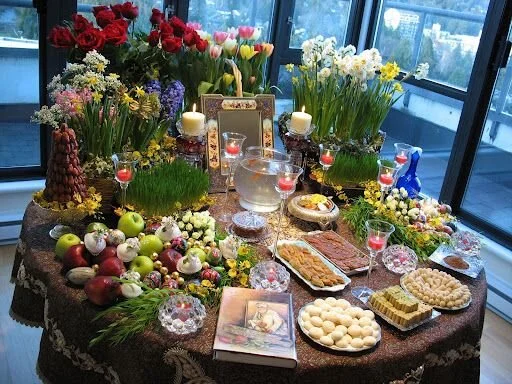













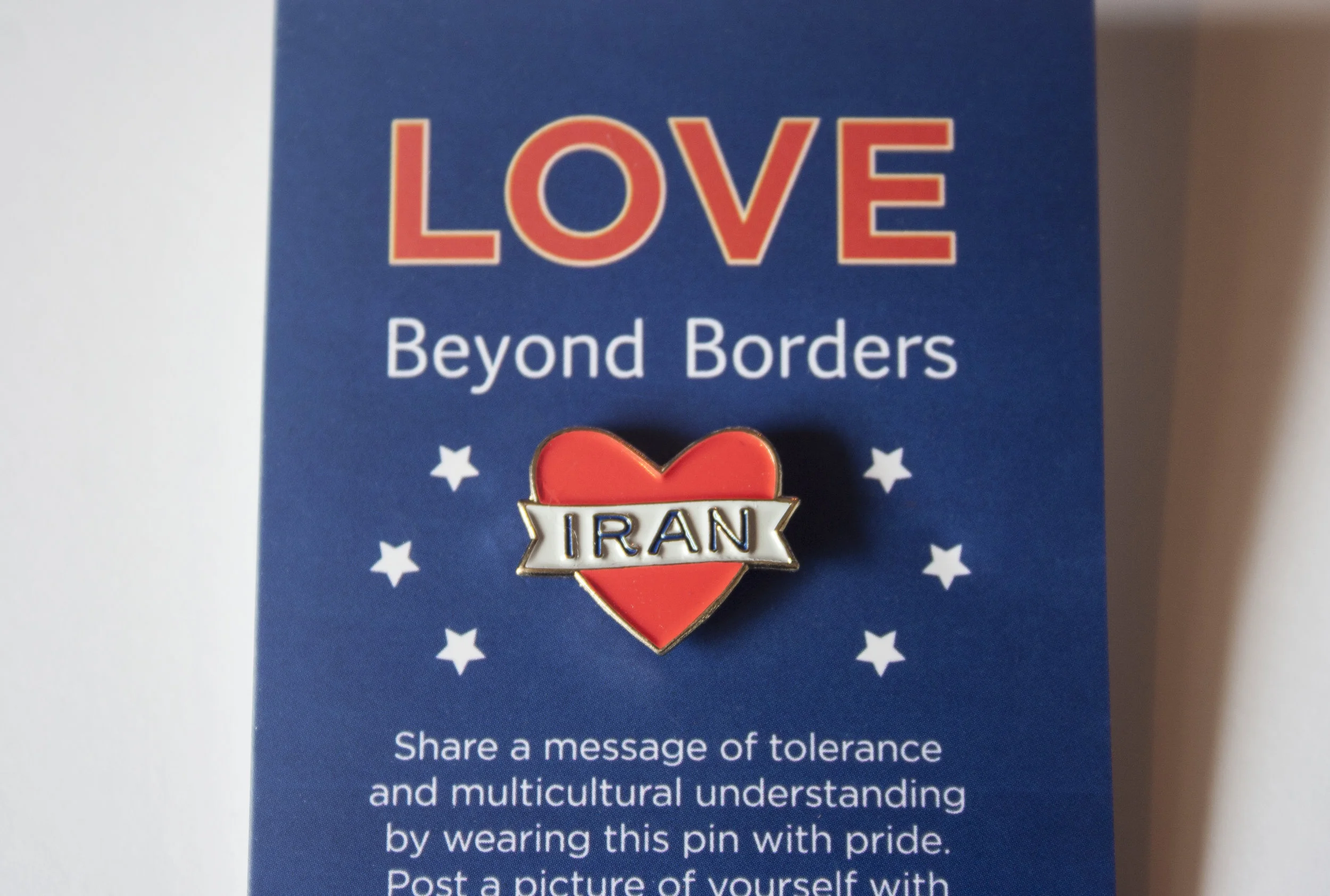

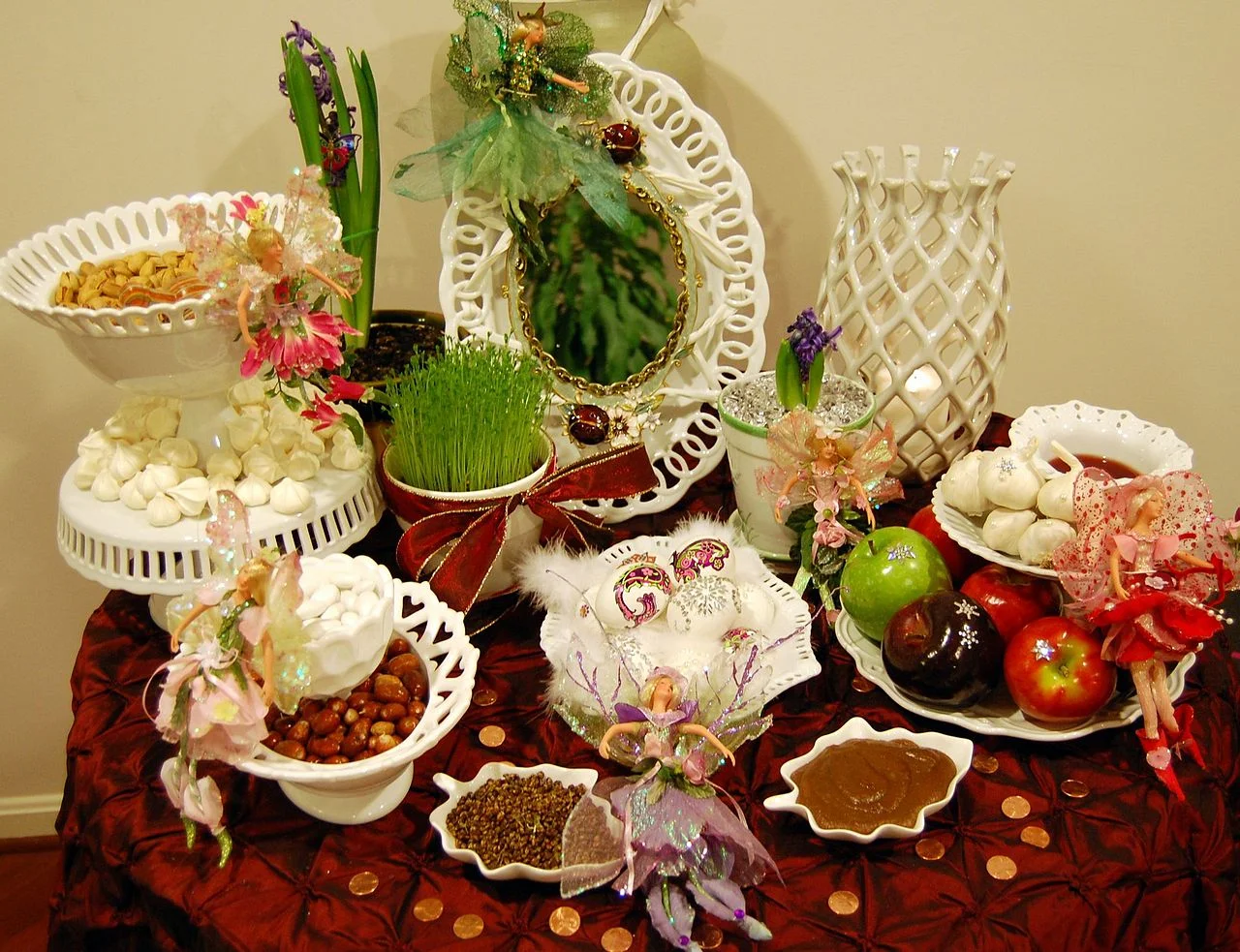


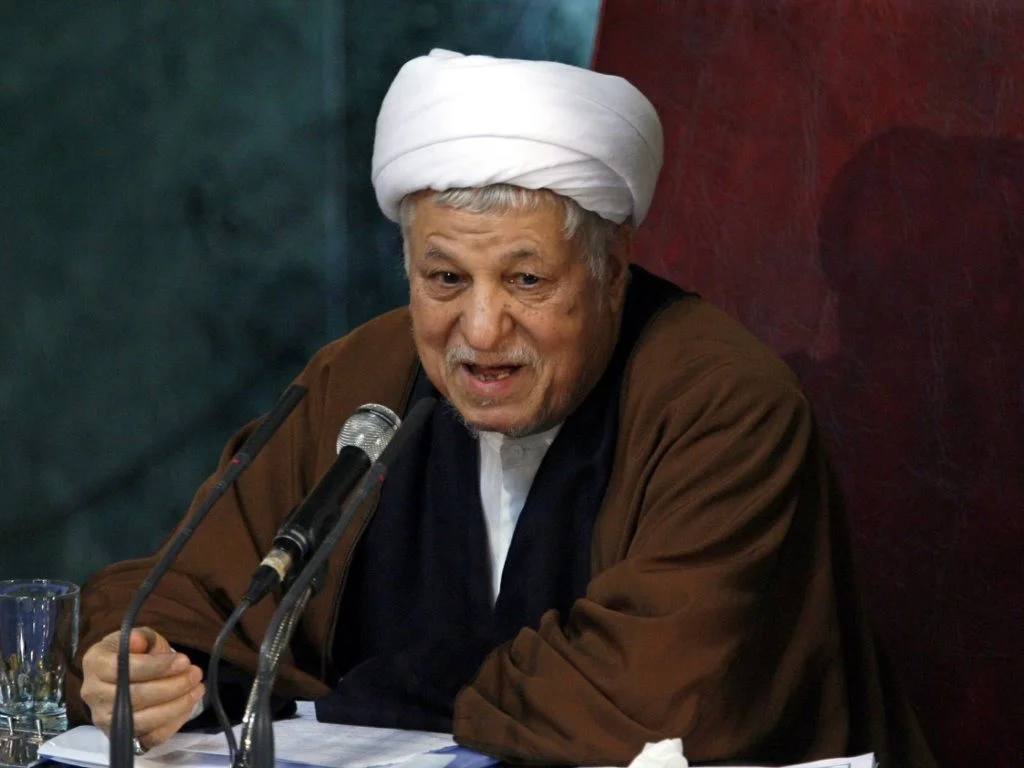
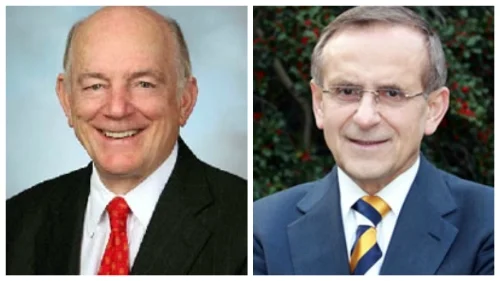
Dear AIC Friends and Supporters,
On behalf of the Board of Directors and the staff of the American Iranian Council, we wish to take this opportunity to share with you the joy of celebrating the Iranian New Year, Nowruz. We at the AIC wish you the best in the year 1404 (2025), a year filled with peace, joy and prosperity, and we hope that the New Year will usher in better US-Iran relations.
Nowruz, literally the new day or New Year, is a celebration of Vernal Equinox which begins on or about March 21 -- marking the Sun's crossing of the Equator and the start of spring in the Northern Hemisphere. A time of renewal and reunion, as well as giving, Nowruz is widely celebrated by Iranians of all ideological and political persuasions and ethnic backgrounds, including Muslims, Christians, Jews, Baha’is, Kurds, Azeris, Baluchis, Turkmen, Lurs, Arabs, and others.